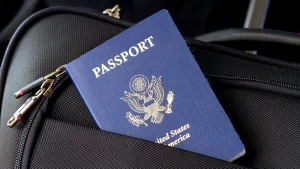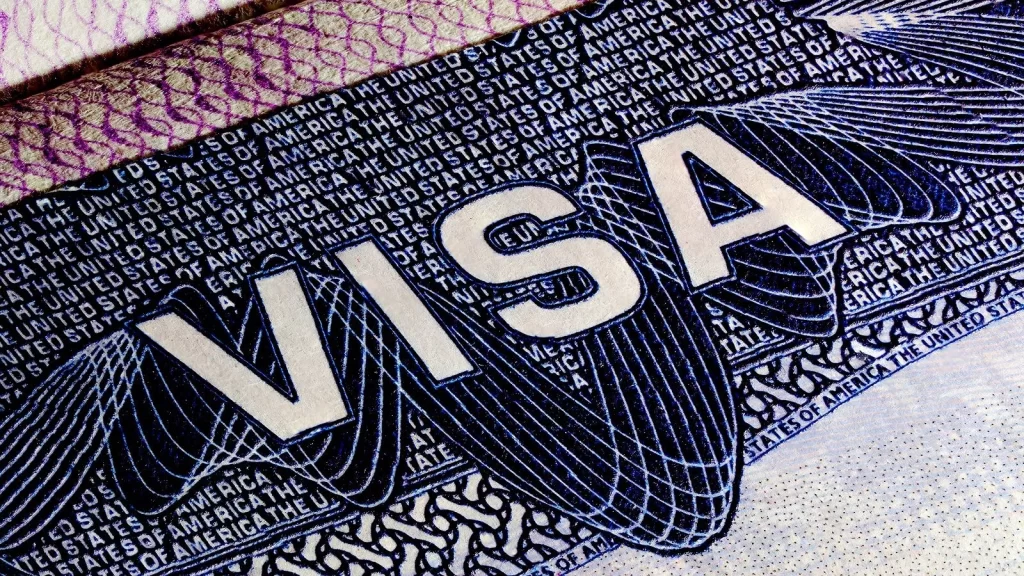EMPLOYMENT-BASED IMMIGRANT VISAS FIRST PREFERENCE
Among all the employment-based visa options, the EB-1 visa, also known as the green card EB-1 category, stands out as one of the quickest paths to gaining permanent U.S. residency. This prestigious visa is awarded to individuals of extraordinary talent, recognized nationally or internationally in their fields, making it a sought-after status for those aiming for the EB1 category green card.

If you possess extraordinary abilities in the realms of science, arts, education, business, or athletics, you might be a prime candidate for this EB1 visa category, allowing for EB1 self-petition. This process uniquely does not require an employer’s sponsorship in the U.S. or the PERM labor certification, underscoring the EB1 process’s streamlined approach for top-tier talent.
Seeking the EB-1 visa? Partner with Passage Immigration Law, your EB1 visa lawyer and EB1 green card attorney with offices in Portland, Oregon, Los Angeles, California, and Seattle, Washington. Our experienced EB1 lawyers and EB1 attorneys offer nationwide services, guiding you through the EB1 success rate and EB1 filing fee, ensuring your petition’s success.
To begin your application with a premier EB1 visa attorney, contact our team at (503) 427-8243, or schedule a consultation directly on our website.
Who is Eligible for an EB-1 Visa?
Eligibility for the EB-1 visa encompasses three distinct categories: Extraordinary Ability (EB1A), Outstanding Professors and Researchers (EB-1B), and Multinational Manager or Executive. Each category has its unique criteria and documentation requirements, tailored to the applicant’s professional background and achievements.

1. Extraordinary Ability (EB1A)
Defined by law, individuals of Extraordinary Ability represent a small elite who have ascended to the pinnacle of their fields, earning national or international acclaim. To qualify, candidates must provide comprehensive documentation proving their extraordinary status in science, art, education, business, or athletics. Such evidence may comprise prestigious national or international awards, scholarly publications, media coverage, leadership positions, a salary that reflects the high calibre of their abilities, roles as judges in their peers’ work, and endorsements from leading experts. EB1a lawyers stress the importance of assembling a strong portfolio to enhance the EB1 self petition success rate, a critical step in understanding the EB1 process effectively.
2. Outstanding Professors and Researchers (OPR)
For academics with a minimum of three years’ experience in teaching or research and who have received a tenure or tenure-track teaching offer, or a comparable research position at a higher education institution, the EB-1B category offers a path to permanent residency. Achieving this status requires you to be internationally recognized as outstanding in your academic field. The documentation to demonstrate this might include major prizes or awards, significant original research contributions, authorship of scholarly books or articles, widespread citation of your work, participation as a judge in peer reviews, and membership in prestigious organizations. This category, catering specifically to EB1 immigration lawyers and their clients, underscores the EB1 success rate by highlighting the applicant’s global recognition and achievements in their field of expertise.
3. Multinational Executives and Managers (MEM)
Executives or managers of multinational companies who have been integral to the overseas affiliate, parent, subsidiary, or branch for at least one year in the last three can pursue permanent residency under EB-1C. This avenue does not mandate the U.S. employer to be a large, globally spanning entity but requires active engagement in business for at least a year. The role in the foreign company and the proposed U.S. position must both be in managerial or executive capacities, emphasizing the EB1 category requirements for leadership and management proficiency.
EB-1 Green Card Application Process
Each subcategory within the EB-1 visa category follows a distinct application path:
- Extraordinary Ability: Individuals can self-petition by filing Form I-140, Petition for Alien Worker, without needing a U.S. job offer or PERM Labor Certification, making it a streamlined route to residency.
- Outstanding Professors and Researchers: Requires a Form I-140 filed by the employer, based on a permanent U.S. job offer. This category, unlike the EB1A self-petition path, does not need a PERM Labor Certification, facilitating EB1 lawyers and their clients in academia to navigate the process efficiently.
- Multinational Manager or Executive: Also necessitates an I-140 form by the employer, with the condition of previous employment abroad in a relevant managerial or executive role, underlining the continuity and leadership experience essential for this EB1 green card path.
Potential Advantages of an EB-1A Green Card
The EB-1A visa stands out as a highly sought-after pathway to U.S. residency for numerous reasons, making it an attractive option for those with exceptional abilities in their field. Here are some key benefits that underscore its desirability:
- No PERM Labor Certification Required: One of the most significant advantages of the EB-1 visa category is the exemption from the PERM labor certification process. Typically, this certification involves a detailed and potentially costly procedure to verify if any U.S. worker can fulfil the job requirements, making the EB-1 green card a preferable choice for many. This exemption not only speeds up the application process but also lowers the risk of rejection and the financial and temporal burdens on the applicant.
- No Permanent Job Offer Required: Unlike the Outstanding Professors and Researchers (OPR) and Multinational Executives and Managers (MEM) categories, the EB1A does not necessitate a permanent job offer. This autonomy allows applicants to self-petition, providing a streamlined path to applying for a green card without the need for U.S. employer sponsorship. This aspect significantly enhances the EB1 self petition success rate, making it a compelling option for individuals of extraordinary ability seeking to navigate the EB1 process independently.
- Current Category: Another notable benefit of the EB-1A green card is its status as usually current in the visa bulletin, facilitating a quicker application process. This means applicants typically face shorter waiting times for their applications to be evaluated and to receive a Department of State (DOS) immigrant visa number, compared to other green card categories. The expedited process is particularly advantageous for applicants eager to commence their professional endeavours in the U.S.
Consulting with experienced EB1 visa lawyers who specialize in the EB-1 category is crucial for navigating this complex application process. Expert EB1 attorneys can provide invaluable guidance and insight, ensuring applicants maximize their chances of success in achieving their American dream.
What Happens If My EB-1 Application Is Rejected?

Receiving a rejection or aiming to preemptively avoid one is a situation many applicants might face. Here’s how you can navigate through it:
If Your Petition Is Rejected
Initially, an evaluating officer scrutinizes your application to ensure all required information and documents are correctly submitted, the data is accurate and consistent, and the filing fees are correctly processed. A petition falling short of these standards will likely face rejection. Rectifying any errors and resubmitting the petition, although necessitating another round of fees, often emerges as the most practical step forward.
If Your Petition Is Denied
At a more advanced stage, the officer assesses the evidence to determine if you or your employer (where applicable) qualify for an EB-1 green card. A failure to meet these criteria results in a denial notice.
In such instances, it’s generally not advisable to simply refile. Instead, engaging with your EB1 visa lawyer to explore filing a legal motion or initiating an appeal process is a strategic move.
How Can Our EB-1 Green Card Lawyer Assist?
At Passage Immigration Law, our immigration lawyers are well-versed in the nuances of the EB-1 visa application process. We offer comprehensive advice and meticulously review the supplementary documentation required for your application, enhancing your chances of obtaining an EB-1 green card. For those navigating the first preference category of employment-based immigration and seeking expert EB1 green card attorney assistance, we are here to help.
Contact us today at (503) 427-8243 to schedule a consultation with a seasoned EB1 attorney from Passage Immigration Law, poised to guide you through each step of your EB-1 application process, from initial filing to addressing any challenges such as rejections or denials.

